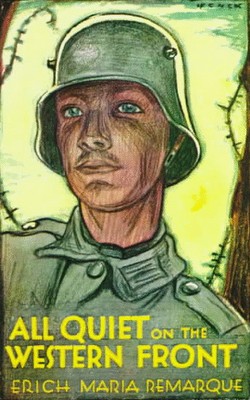Update on Monday, noon: I am off the hook since all cases settled in court. No need for jury members! We will have class Wednesday, and I expect work on WWI, the film, and group results will keep us busy.
The next activity, as described below, is next after we have concluded WWI.
I have no news on my jury duty yet. The courthouse asked to call again on Monday at noon. I have a low call in number, so I am likely to be called - they tell me. So I am preparing the next topic for our class: a research activity. Read on...
Wed. Oct 3
Since our discussion of the World War, book and movie, will happen when we'll meet again, here is the next activity to keep your involved in case we do not meet on Wednesday. I am posting this now so that you can select a topic and start researching.
Select one topic, one century, write in your name and start researching with the two other students who picked the same topic and time.
Create a presentation on your blog. Have at least ten slides or screens of information. Do not copy text. Write text. Citations are allowed. Name your sources at the end of the post. Have a handout for 50 people where you show the main points on a single sheet of paper.
Sign up sheet
The class research project on eight topics relating to German culture. 1. Each student picks a topic and a century. Fill in your name. Do not erase names already present, please. One topic, one century for now. 2. Research the topic in your group. Create a blog post with a 6-7 minute class presentation on your topic. Each student shows the same presentation in their blogs. 3. Present in class, have a handout for 50 participants, show no less than ten slides in your presentation. topics
18th century 19th century 20th century
Industry and business group of three students group of three students group of three students
1 Jacob Mackedanz Jessica Hall jon wegeleben
2 Robert Backes Will Wacholz Industry and business
3 tom louiselle Scott Reid David Colbert
Fine Arts, Music, Theater, Dance group of three students group of three students group of three students
1 Mackenzie Branch John Beuning Cody Kvamme
2 Amanda Goedeke Joe Albers Tess Hamre Fine Arts, Music, Theater, Dance
3 Brittany Hofstater Marissa Navarro Haitam Aldaij
Literature group of three students group of three students group of three students Tom Louiselle - find a diff. group.
1 Matt Mosolf Jake Mueller
2 Kelly Jones Literature
3 A.J. Ray mustafa al abbad
Media (from books, newspapers to electronic) group of three students group of three students group of three students
1 Mike Neslund Maythem Alabbad
2 Dillon Anderson Ry Hammond Media (from books, newspapers to electronic)
3 Sapphire A Ashley Ogaja
Role of women group of three students group of three students group of three students
1 "
Ryan Anderley"
2 Jason Janzen Role of women
3 Kari Anderson
Politics in the center of Europe (German lands and bordering states) group of three students group of three students group of three students
1
2 Politics in the center of Europe (German lands and bordering states)
3
Health (from medicines to pharmaceutical developments) group of three students group of three students group of three students
1 Nicole Nelson John De-Souza James Kreiman
2 Cara Lamers Matt Kinzer Kayla Rardin
3 Matt Bliss Patrick Biernat Brendan Pucel Health (from medicines to pharmaceutical developments)
Kindra Pfaff
Sports and Health movements group of three students group of three students group of three students
1 Xianzhi Yu
2 Kristian Helgeson Sports and Health movements
3 Jialun Shen





 (Photo source: http://www.ebay.com/itm/AL-QUIET-WESTERN-FRONT-1929-1ST-ED-STATED-1ST-PRINTING-E-REMARQUE-VG-/370581771399)
(Photo source: http://www.ebay.com/itm/AL-QUIET-WESTERN-FRONT-1929-1ST-ED-STATED-1ST-PRINTING-E-REMARQUE-VG-/370581771399)
